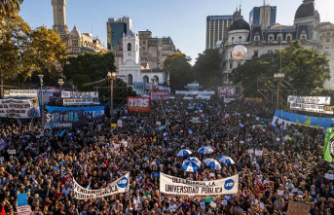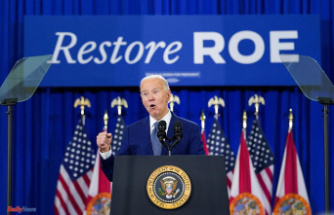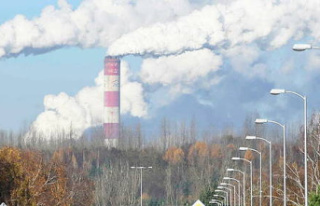Greek Prime Minister Kyriakos Mitsotakis on Wednesday blamed the train disaster that killed 38 the day before on "tragic human error", as controversy swelled in the country over the state of the network that many consider dilapidated.
"Everything shows that the tragedy is due, unfortunately, mainly to a tragic human error," said the head of government, who went to the scene and declared a three-day national mourning.
Earlier the Minister of Transport, Kostas Karamanlis, announced that he was presenting his resignation after this accident between a passenger train with 342 passengers and ten railway employees on board, which linked Athens to Thessaloniki in the north of the country, and a convoy merchandise.
They collided head-on when they had been on the same path for several kilometers for an undetermined reason, killing 38 and injuring several dozen according to a latest report.
The station manager of Larissa, the town closest to the accident in central Greece, was arrested during the day, according to a judicial source to AFP and he is being prosecuted for "negligent homicides" and for having been cause of "bodily injury".
Most of the victims are "young people", stressed Mr Mitsotakis as many students returned to Thessaloniki after a long weekend, Monday being a public holiday in Greece.
Recounting having met relatives of victims during a visit to the scene and then to the hospital in Larissa, Kyriakos Mitsotakis said: "They asked me 'why'.
"We owe them an honest answer," he added in a brief recorded television intervention.
Under the violence of the shock which occurred shortly before midnight (22:00 GMT) in the Valley of Tempé, the locomotives and the leading cars were pulverized and the drivers of the two trains killed on the spot.
The president of the OSE train drivers' union, Kostas Genidounias, denounced the lack of safety, according to him, on this line which connects the two main cities of Greece.
"All (the signaling) is done manually. It's been since the year 2000 that the systems have not worked," he said on the television channel Ert.
Previously, he had also assured AFP that "no security system, remote control and traffic light were working".
Contacted by AFP, the Italian public group Ferrovie dello Stato (FS), which controls the Hellenic Train railway company, privatized in 2017, did not immediately comment.
Footage showed charred train cars in a tangle of metal parts and shattered windows.
Other carriages, less damaged, lay on their side as rescuers used ladders to try to extricate survivors and two giant cranes to transport pieces of the train carcasses.
The collision occurred at the exit of a small tunnel over which passes a highway linking Athens to Thessaloniki.
"The work of firefighters and rescuers is very difficult, they are looking for (...) the charred bodies", explained Konstantinos Giannakopoulos, the president of the union of doctors of Larissa, on the chain. of public television ERT.
"It was the terror train," Pavlos Aslanidis, whose son is missing along with one of his friends, told reporters.
In Larissa, where the injured were transported, the mayor, Apostolos Kalogiannis spoke of "floods of ambulances bringing burn victims, amputees, everything you can imagine".
"We felt the collision like a big earthquake," a passenger, Angelos, 22, told AFP at the scene.
"Fortunately, we were in the penultimate car and we got out alive. There was a fire in the first cars and panic ensued. It was a nightmare that I lived (. ..) I'm still shaking," he continued.
Some 500 people took part in the rescue on Wednesday, the government spokesman said.
03/01/2023 20:12:14 - Larissa (Grèce) (AFP) - © 2023 AFP












